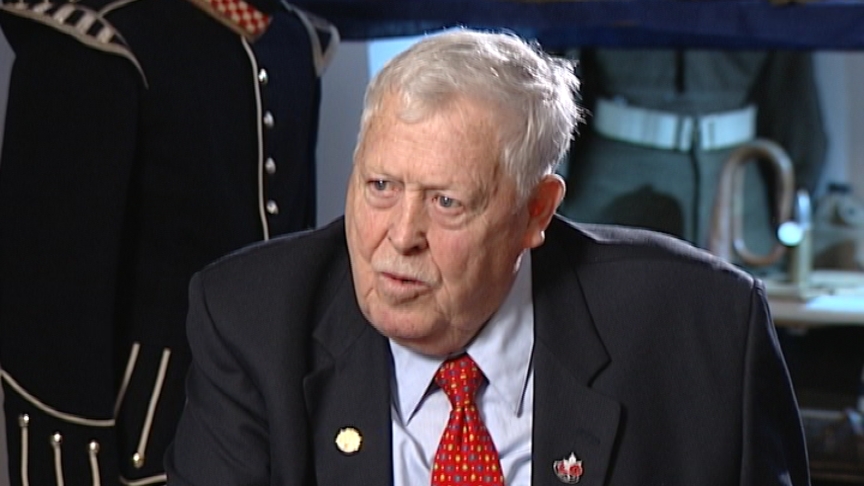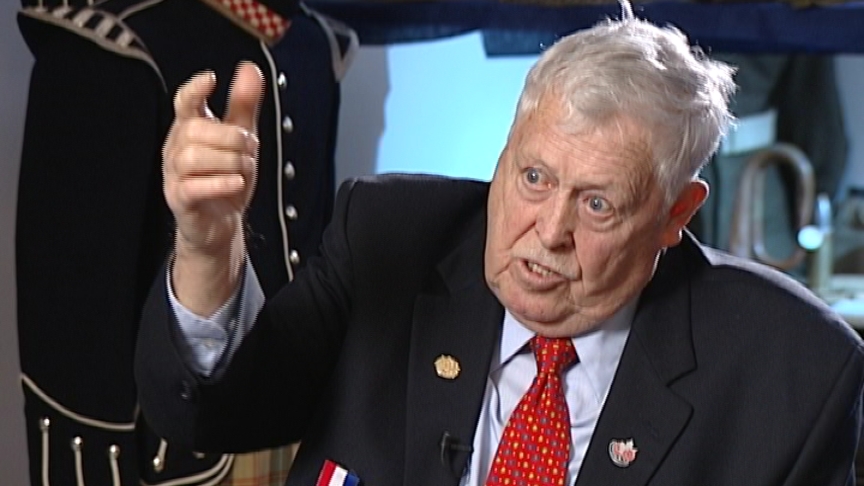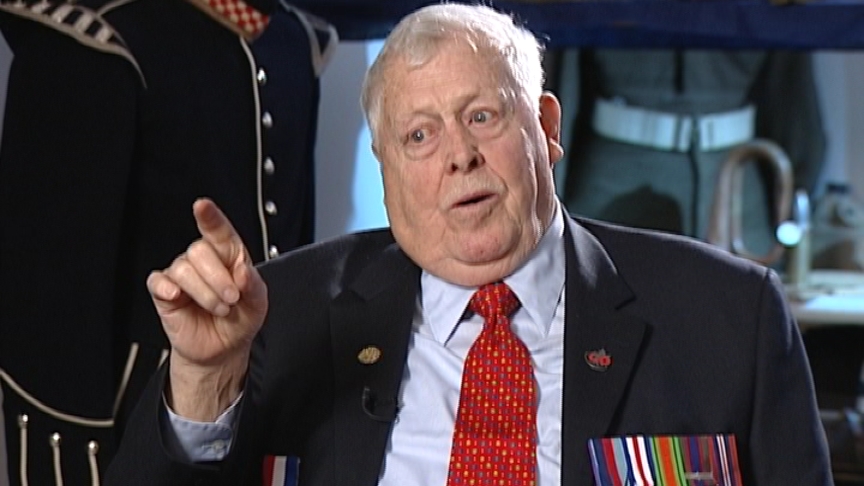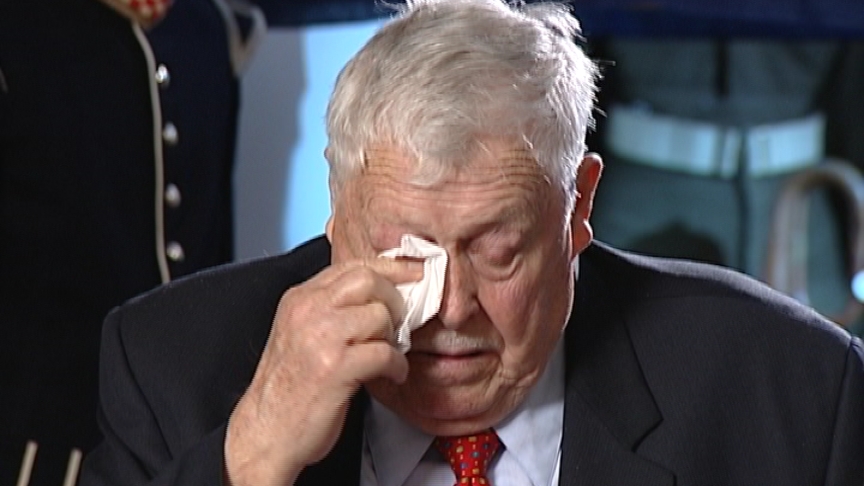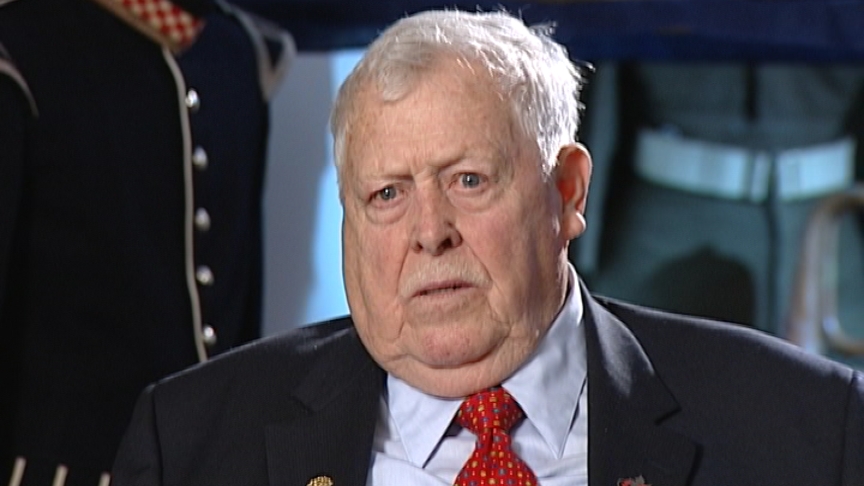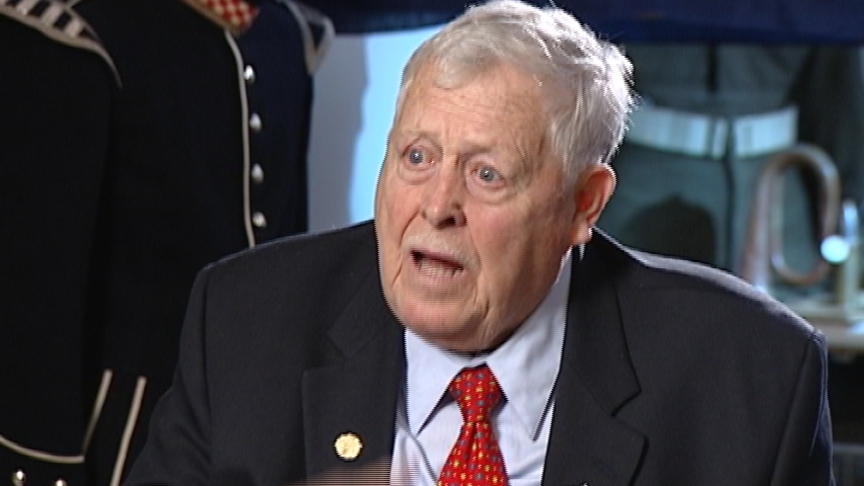The Job of a Special Force Signaller
Heroes Remember
The Job of a Special Force Signaller
Transcript
Description
Mr. McNiven recalls being assigned to a Special Force of signallers, and describes their duties.
John Percy McNiven
Mr. McNiven was working as a truck driver in Regina, Saskatchewan, before the Second World War began. As propaganda increasingly encouraged young men to join the service, one weekend evening Mr. McNiven and a friend worked up the courage to join. After basic training as a truck driver and mechanic, Mr. McNiven rejected the opportunity to serve in Canada and instead entered the Signal Corps. in order to make it overseas. After completing signaller training, Mr. McNiven was sent overseas to northern England to reinforce 2nd Division. Eventually the division shipped out, destined for Juno Beach. Since 2nd Division was part of the 3rd wave behind 1st and 3rd Divisions, the fighting at the beach had finished by the time Mr. McNiven reached shore. From there Mr. McNiven served in a special force of signallers, working with three others in the division. As the War progressed the division worked its way across France and Holland, and eventually into Germany where they were when the War ended.
Meta Data
- Medium:
- Video
- Owner:
- Veterans Affairs Canada
- Duration:
- 03:17
- Person Interviewed:
- John Percy McNiven
- War, Conflict or Mission:
- Second World War
- Location/Theatre:
- Europe
- Branch:
- Army
- Units/Ship:
- 2nd Division (Special Force)
- Occupation:
- Driver
Related Videos
- Date modified:



